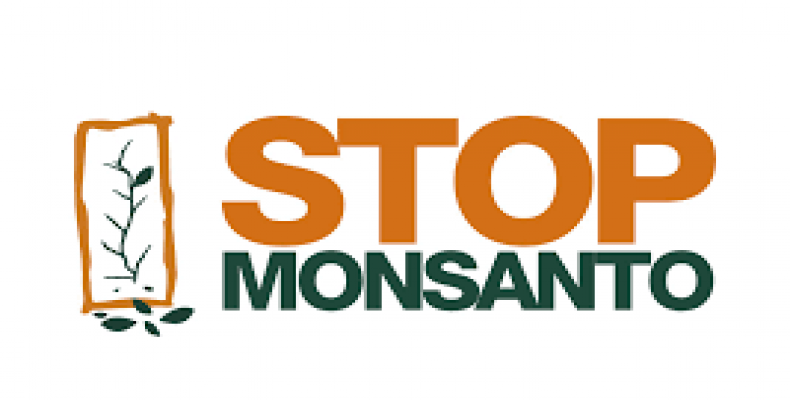New York, October 17 (RHC)-- Ever-tightening corporate control over seeds and other agricultural resources, epitomized in the recent Bayer-Monsanto mega-merger that cemented the largest agrochemicals company in the world, increasingly threatens the rights of small farmers at the foundation of the world’s food supply and locks in a system that sees food strictly as a commodity, rather than a basic human right. For the future of people and the planet, urgent reform is needed.
That’s the argument of the 2016 edition of the annual Right to Food and Nutrition Watch, released by a consortium of human rights and food and nutrition organizations from Africa, Asia, Europe, and the Americas.
In the face of runaway privatization and the monopolization of seeds in a few corporate hands -- together with the criminalization of traditional agricultural practices, especially seed saving, and increasing attacks against community land and resource defenders -- the report argues that states have a responsibility to protect farmers right over corporate profits.
Several articles in the comprehensive, nearly 90-page document, entitled “Keeping Seeds in Peoples’ Hands,” also criticize the influence powerful corporations wield over public policy and decision making, including at the multilateral level. The report explores issues including biodiversity, development, and the right to food in case studies spanning across Africa, the Middle East, Europe, Asia, and the Americas and makes recommendations for policy makers.
The authors suggest that stronger domestic policies that enshrine campesino and peasant rights to save, exchange and sell seeds is a key part of the effort to curb corporate power. Such measures could help lift up the right to food above intellectual property rights of agribusiness giants that seek to privatize, patent and control basic resources, often through neo-liberal free trade agreements that undermine local food sovereignty.
The report also celebrates the social movements organizing to defend access to land and seeds and fight for local local food sovereignty — acts that are increasingly criminalized around the world with an upswell of violence targeting land defenders in recent years — and calls for integrated “warning systems” to support activists and victims of attacks and persecution.
“Access to and control over seeds and natural resources are directly related to the rising levels of criminalization and killings of human rights defenders,” concludes the report, which the authors dedicate to slain Honduran leader Berta Caceres — internationally renowned for her work defending Indigenous land rights and the environment — and other activists who risk their lives for human rights and land.
“Those who killed her tried to silence her, but she planted a seed for a struggle that others will reap with their enduring fight for human rights,” the report says of Caceres, who was killed in March after years of resisting an unwanted private hydroelectric dam on Lenca land. “A seed that cannot be owned or coopted.”
One of the case studies in the report details how social movements in Honduras, including Caceres’ Lenca community, are spearheading efforts to resist agricultural privatization and the “systematic incursion of transnational companies.” Such initiatives include community seed-saving and exchange banks and local bans on genetically modified seeds in Lenca territories in the name of protecting the environment and exercising their Indigenous right to self-determination.
Similarly, in Colombia, a consortium of campesino, Indigenous, and Afro-descendant movements have created the Network of Free Seeds to preserve native seeds, promote food sovereignty, and pressure for progressive policy change to put an end to criminalization of small farmers and alternative food producers.
The challenges of restrictive seed laws and systemic inequality in the food system — and resistance to these dynamics — is widespread.
“Rural Latin American populations and the rest of the world face great threats to the free use, handling, circulation and exchange of seeds that underpin their productive, cultural and food activities,” reads the report. “These threats are related to the role of transnational power and complicit states, which in the context of their desire for greater control over the world’s agri-food system see control over seeds as an incalculable source of profit.”
In response, social movements in Latin America and beyond have risen up with diverse strategies focused on conserving, reclaiming and sharing traditional local seeds — and the ancestral agricultural knowledge and practices that go along with them.
Olivier de Shutter, former U.N. special rapporteur on the right to food, heralded the report as a call to action for communities to “challenge the mainstream narrative as to what progress is about and how to measure it” while supporting efforts to counter and transform the industrial food system.
“In all world regions, communities are building alternative food networks as well as new ways of producing and consuming food, and of sharing seeds,” he said in a statement accompanying the report. “They are circumventing the mainstream food system and the striking inequalities and concentration of power that characterize it.”
The report comes just a day ahead of the launch of a mock tribunal at The Hague Friday to put the notorious agrochemical and seed giant Monsanto on trial for crimes against humanity. Top seed and anti-GMO activists, including Vandana Shiva, are spearheading the international tribunal that aims to deliver justice — even if only symbolic — for the victims of corporate greed and unchecked power of multinationals like Monsanto.
Report Shows Corporate Domination of Food Enslaves Farmers and Consumers


